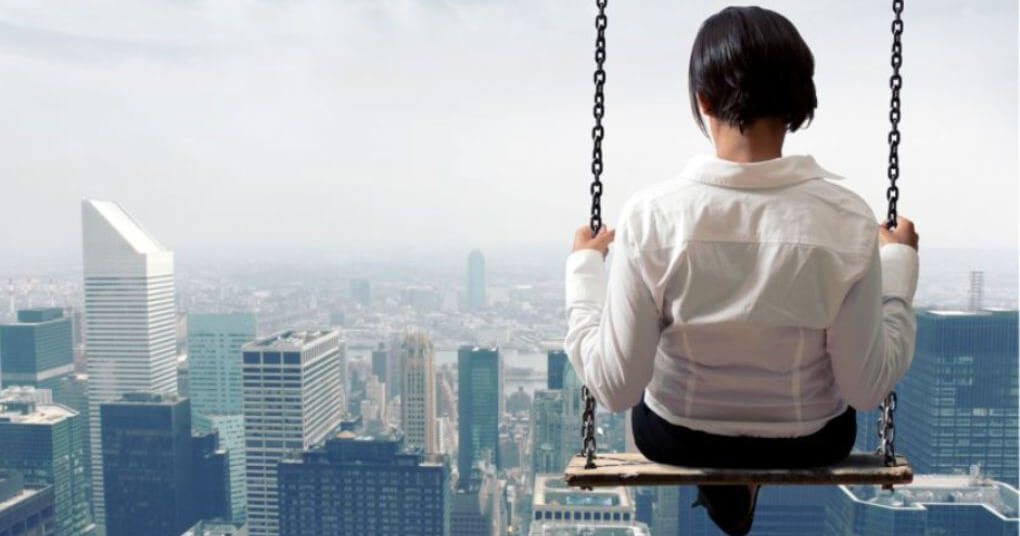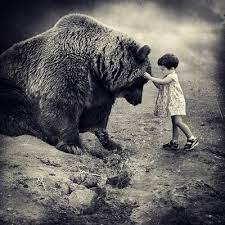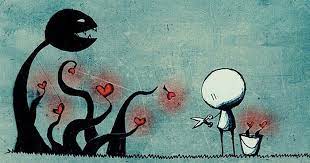

The pandemic, storms, droughts, climate change, political unrest, wars…
Of course we are justified in being afraid. Fear is our internal warning system, an alarm bell telling us we are in danger. It is never a comfortable feeling.
But fear is also our friend, directing us to take action, and if we turn our back on it, it takes on other forms.
Unfortunately all these render fear’s warning bell useless. They deafen us, blind us to the need to act, or work together to find solutions.
Fear is our friend. We need to recognize it, greet it, welcome it, take some time to listen to it, and, with its help, find a way forward.
When I was in Liberia working for the World Health Organization (WHO) on the Ebola outbreak,one Liberian nurse caring for twenty sick family members said she was always afraid. But what she did with that fear was to acknowledge it and keep walking until the fear receded. Then she could take the actions she knew had to be done to care for her family.
We can also acknowledge and recognize fear, even when it is hiding as anger or denial or a refusal to take responsibility. Then we can take forward steps like that nurse, and know just what to do.

There are often clues. If we are feeling helpless or angry. If we are withdrawing, saying it is “not my problem” or that there is no real problem. If we are eager to blame the situation on others. These are signals for us to pause and look inside and see if, beneath it all, lies our good friend Fear.
And when we find it, our friend will help us.
My fear kept me safe in Liberia. My fear reminded me to be cautious about touching people. It reminded me to wash my hands often, to observe basic health procedures, and to assess the risks of every situation I found myself in.
What I discovered through my various forays into Afghanistan under Taliban in the 1990s and then later during the US-led fighting, was that people adapt to the fear of war. They run to the bomb shelter. They help their elder neighbors make their way to refuge. When it is over, they go back to their work, their homes, their daily activities. They adjust their lives to manage living within the violence as best they can.
Our fear is natural, healthy, and helpful. What I hope for us, as a global community, is that we don’t just react blindly from fear, but that instead we pause and take the time to acknowledge it and then listen to it and learn its message.
For many years, my fear became a silent partner that allowed me to return again and again to act with kindness.
Simply saying hello to fear is a powerful process.
We are offering a 1.5 hour participatory webinar on February 4, 2023 to explore our fears from a community wellness approach. You can find out more here.

1) Close your eyes.
Begin with the outer body, your hands and your feet. As you sit quietly, be aware of your body…how it rests in the chair. How the air feels on your face. Slowly bring your awareness to your breathing and follow each breath inside. Slow it down and pay attention to your body as you do.
2) Next bring your awareness into the center of your being.
Ask yourself what feels alive and forward moving in your life.
Sense how it feels to be with that forward aliveness inside.
3) When it feels right, maybe you can sense now what your fear is like inside. Look beneath any feelings of denial, or anger, or helplessness. Seek out your fear. Sometimes it helps to imagine fear as a friend in need.
Greet your fear as a friend whose job is to keep you safe.
Take time to sense what it is wanting for you. Maybe also to sense if it is wanting something from you.
Notice what happens when you take time to greet fear as a friend.
Thank your fear for protecting you.
4) Now slowly bring your attention back to your body and the support of the chair, and then back to the room around you.
When you are ready slowly open your eyes.
Now that you have met your fear as a friend, you have opened the way for your compassionate self. You can take care of yourself and tap into that forward aliveness to contribute what you can to the situation we face together.
We are offering a 1.5 hour participatory webinar on February 4, 2023 to explore our fears from a community wellness approach. You can find out more here.
Copyright © 2024 - Focusing Initiatives International, All Right Reserved. - Privacy Policy, how we process your personal data.